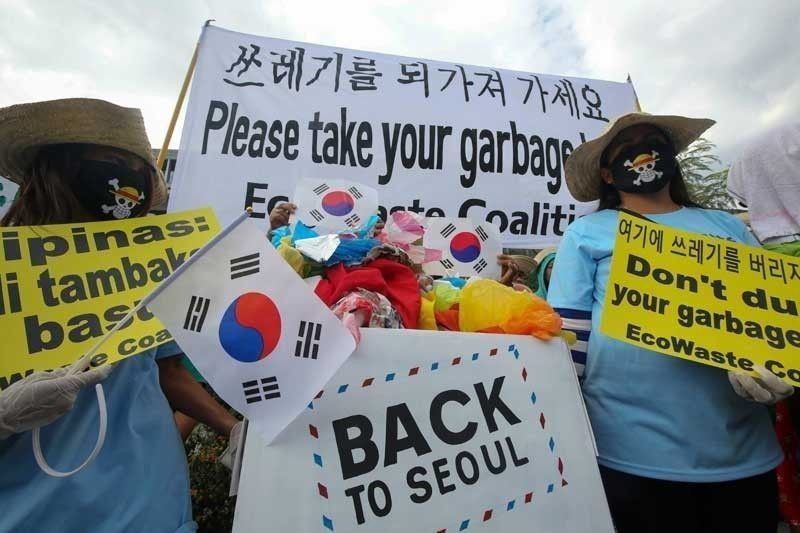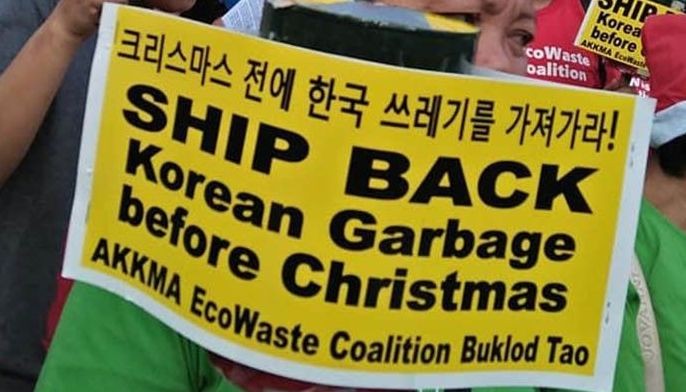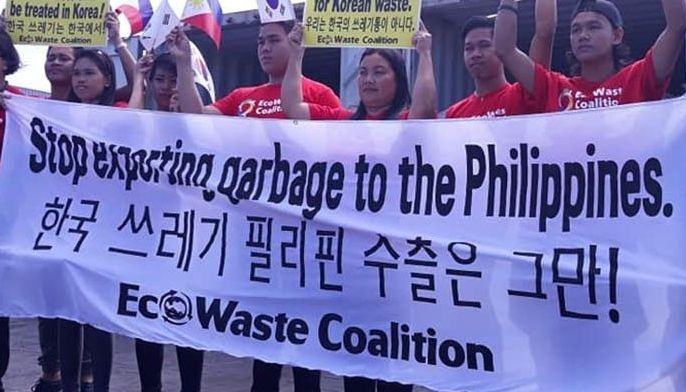1st batch of trash sent back from Philippines arrives in South Korea

MANILA, Philippines — The first batch of trash illegally brought into the Philippines has finally returned to South Korea, environmental watch group EcoWaste Coalition said.
The 51 trash-filled containers, weighing around 1,400 tons, arrived in Pyeontaek City Sunday morning, less than a month after leaving the Mindanao International Container Terminal in Misamis Oriental.
Aileen Lucero, national coordinator of the EcoWaste Coalition, welcomed the arrival of the first batch of garbage.
“The unloading of the botched garbage shipments from M/V Spectrum provides a solid proof that doing the right thing for public health and the environment is not impossible,” she said.
The waste shipments—wrongly declared as “plastic synthetic flakes”—arrived in a Mindanao port last July 2018. These were exported by the Korean company Green Soko and consigned to a Filipino-Korean company Verde Soko.
Among the materials found in the waste shipments were plastic bottles, straws, styrofoams, diapers and electronic waste.
‘Hasten return of remaining dumped garbage’
But the victory is not yet complete for EcoWaste as it pressed the South Korean government to speed up the return of the remaining dumped garbage.
“However, this landmark victory is still incomplete as bulk of the dumped garbage, over 5,100 tons, are still stranded in the town of Tagoloan, Misamis Oriental posing health and environmental hazards,” Lucero said.
She added: “To speed up their re-export, we request the South Korean government to intercede and assume responsibility for their re-bagging as the consignee has failed to do its job due to alleged lack of resources.”
Lucero earlier called on the Department of Environment and Natural Resources to ban plastic waste importation “to safeguard human health and the environment.”
“We request DENR Secretary Roy Cimatu to impose tough measures that will prevent discarded plastics that could no longer enter China from being diverted into the Philippines due to loopholes in existing regulations,” she said in January.
- Latest
- Trending































